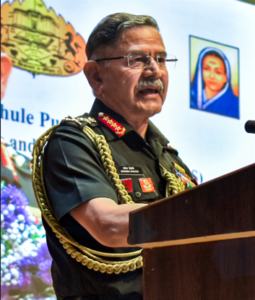“SC again proved acceptability, relevance of Assam Accord”: Assam Minister Atul Bora
Guwahati (Assam) [India], October 17 (ANI): Assam Minister and President of Asom Gana Parishad, Atul Bora on Thursday welcomed the Supreme Court’s decision to uphold the constitutional validity of Section 6A of the Citizenship Act.
“The Supreme Court order has again proved the acceptability and relevance of the Assam Accord,” the Assam Minister said.
Earlier today, the Supreme Court upheld the constitutional validity of Section 6A of the Citizenship Act inserted by way of an amendment in 1985 in furtherance of the Assam Accord.
A bench of Chief Justice of India DY Chandrachud, Justices Surya Kant, MM Sundresh, and Manoj Misra gave the majority verdict, while JB Pardiwala passed a dissenting verdict.
The Central government, in an affidavit, had told the Supreme Court that it would not be able to provide accurate data on the extent of illegal migration of foreigners into India as such migration happened in a secretive manner.
On December 7, the apex court directed the Central government to furnish data on the number of immigrants who were conferred Indian citizenship through Section 6A(2) of the Citizenship Act, 1955 and what steps have been taken so far to curb illegal migration into Indian territory.
The affidavit stated that 14,346 foreign nationals were deported from the country between 2017 and 2022, and 17,861 migrants who had entered Assam between January 1966 and March 1971 were given Indian citizenship under the provision.
32,381 persons were declared foreigners by orders of Foreigners Tribunals between 1966 and 1971, it had added.
Earlier, the bench had said that Section 6A was enacted as a humanitarian measure in the wake of the 1971 Bangladesh Liberation War and is deeply interwoven in our history.
On December 17, 2014, a matter relating to citizenship in Assam was referred to the five-judge Constitution bench. On April 19, 2017, the top court constituted the bench to hear the case.
In 1985, the Indian government, the All Assam Students Union (AASU) and the All Assam Gana Sangram Parishad (AAGSP) negotiated and drafted the Assam Accord and created categories of immigrants. Section 6A was added to the Act in December 1985 in furtherance of the Assam Accord.
AASU and AAGSP were groups that agitated against an influx of Bangladeshi immigrants after Bangladesh separated from West Pakistan in 1971. The process of Bangladesh’s independence began on March 26, 1971, when Sheikh Mujibur Rahman, the leader of the Awami League, declared East Pakistan’s independence from Pakistan. The Pakistani army responded with a violent crackdown, including Operation Searchlight and Operation Barisal, which targeted the intellectual elite of East Pakistan.
Bangladesh separated from West Pakistan on December 17, 1971, after the Pakistani army surrendered. The new country was officially named Bangladesh on January 11, 1972.
Section 6A provides the framework to recognise migrants in Assam as Indian citizens or to expel them based on the date of their migration.
The provision provides that those who have come to Assam on or after January 1, 1966, but before March 25, 1971, from specified territories, including Bangladesh, and since then are residents of Assam, must register themselves under Section 18 for citizenship. Therefore, the provision fixes March 25, 1971, as the cut-off date for granting citizenship to Bangladeshi migrants in Assam.
Section 6 of the Constitution states that any person who migrated from Pakistan before 19 July 1948 would be granted citizenship. Petitioners said that Section 6A indirectly amended this constitutional provision, arguing that Bangladesh was still a part of Pakistan on 1 January 1966.
They said the insertion of a new cutoff date for granting citizenship would violate an existing cutoff date for immigrants entering India from Pakistan.
The Bangladesh Liberation War, which led to the independence of Bangladesh from Pakistan, witnessed a massive influx of migrants to India. Even before when Bangladesh gained independence from East Pakistan in 1971, migration had started to India.
On March 19, 1972, Bangladesh and India entered into a treaty for friendship, cooperation and peace.




